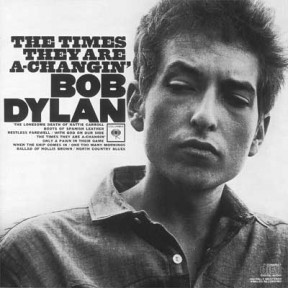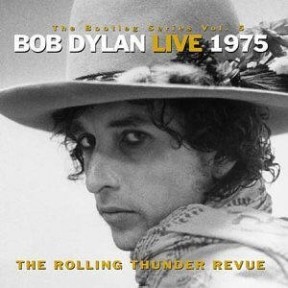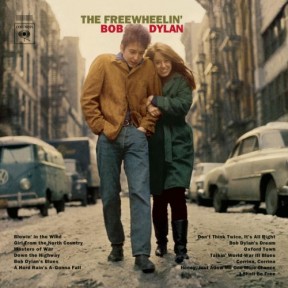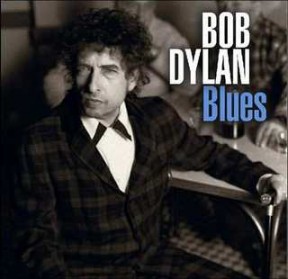Robert Allen Zimmerman is still here and still relevant.We still have living amongst us a man, who wrote lyrics like, “I saw guns and sharp swords in the hands of young children
And it’s a hard, it’s a hard, it’s a hard, and it’s a hard
It’s a hard rain’s a-gonna fall.”
We will never really know if the time Bob Dylan was becoming a musician in, defined him or whether he defined it through his songs. Fact is, he is the Eliot of our cultural, social and political wastelands, the man who saw tomorrow, the wilful stone that never stopped rolling on a diamond strewn lyric sheet, someone rare and precious because he is not the figment of the media’s imagination but a self-crafted voice of dissent. Someone who could ask questions few musicians before or since have bothered to ask. Questions like, “how many years can a mountain exist, before it is forced to the sea.. how many years can some people exist, before they’re allowed to be free.”
What Dylan really showed us with his most thought provoking work is that it is possible to strum collective consciousness and not just a guitar. He was not a blatant cause hugger, an opportunistic counter culture icon but someone caught in the cusp of a momentous time in history and what he did was to not sit on a fence but speak eloquently, powerfully and sometimes bitterly about the stupidity of war, nuclear stockpiles and the arms race. And nothing he wrote could take away from his instinctive talent as a musician who explored musical genres and not trends. Most culture critics have traced the musical influences that shaped Dylan but it is hard to really measure the way Dylan has influenced not just music but the way we think about politics, musicians and the limits of popular music and if there are any. Limits, that is.
For someone with such a vast body of influence, Dylan is a minimalist performer. His flamboyance for most parts remains invisible. He does not need the paraphernalia of superstardom around him when he gets up on a stage to sing. There is no desire to put up a show, to perform anything other than the music. To gather a following.
Both sets of Dylan’s grandparents came to America to escape some kind of persecution. His paternal grandparents, Zigman and Anna Zimmerman, emigrated from Odessa, what is now known as Ukraine to escape anti-Semitic pogroms. His maternal grandparents, Benjamin and Lybba Edelstein, were Lithuanian Jews. At the back of his mind, there was possibly awareness that the weak are easy to hunt and to chase away from what is rightfully theirs. Maybe, his desire to speak against the hegemonies of power came from his family history.
His love for music came from incessant radio listening which later blossomed into the need to perform professionally. At some point he realised that he did not want to write songs that just skimmed the surface of life. He wanted to create music that was more than just a sing along catchphrase. That his music would be more poetry than lyrics was cemented when he changed his name to Bob Dylan, as a compliment to the poet Dylan Thomas. Somewhere within him, there was also the need, dormant and yet unexpressed to do what folk idol Woody Guthrie had done. Channel the American spirit. Its longings, angst, hurts and concerns.
But then, his work began to grow beyond just Americanisms. It became about everyone, anywhere in the world. He became known for the quintessential protest song. For questioning why no one asked hard questions or saw answers blowing in the wind. He began to do the unthinkable like marrying a folk ballad’s soul to the hard rain of a nuclear apocalypse. And he sang his songs with a kind of raspy, uncompromising directness that was both absorbing and also a bit disturbing. More disturbing were his themes whether they endorsed civil rights, supported farming communities or questioned violence.
But being Dylan, he also dared to defy his own image as a protest specialist and went on to break new ground both musically (going electric from acoustic) and poetically (free association). Even at the height of his commercial success, he did not play into the hands of his sometimes ecstatic, sometimes angry fans or into the traps set by the handlers and publicists who usually control celebrity lives.
But on his own, Dylan has been everywhere. Films, books, art, protest, secularism, Christianity, cocking a snook at expectations of any kind, tours, awards (even a Pulitzer citation), radio, lingerie ads, cola and Cadillac endorsements and immorality, plain and simple. He has gone where ever the winds of his mind have taken him. For someone whose high school ambition was to follow Little Richard, Bob Dylan has carved a trail that is not just hard but impossible to follow.
Reema Moudgil is the author of Perfect Eight. (http://www.flipkart.com/perfect-eight-reema-moudgil-book-9380032870) .









